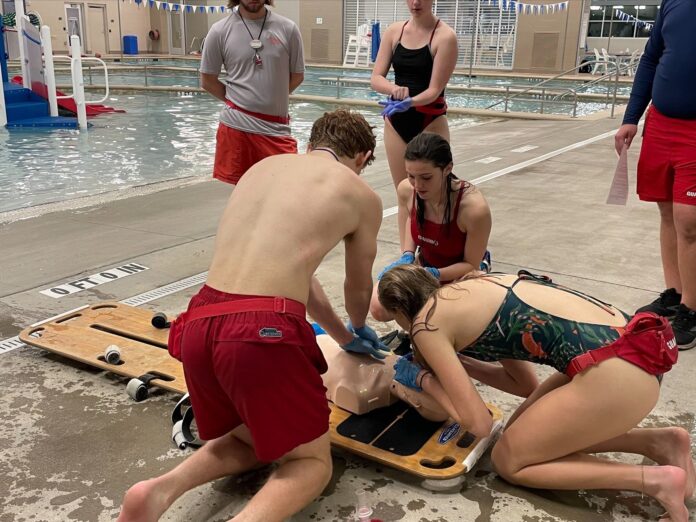Lifeguard training is not just about acquiring a certification; it’s a commitment to ensuring the safety of individuals in aquatic settings. The American Lifeguard Association (ALA) stands as a beacon in providing top-notch lifeguard training, preparing individuals to handle emergencies with confidence and skill.
Importance of Lifeguard Training
Lifeguard training is indispensable in preventing water-related accidents and saving lives. As guardians of aquatic safety, lifeguards play a pivotal role in ensuring that individuals can enjoy water activities without fear.
Ensuring Water Safety
Water safety goes beyond the ability to swim. Lifeguard training equips individuals with the skills needed to respond promptly and effectively in emergency situations, fostering an environment of safety.
Role of American Lifeguard Association
ALA has emerged as a leader in lifeguard training, setting high standards and continuously innovating its programs to address evolving challenges in water safety.
Basics of Lifeguard Training
Eligibility Criteria
Before embarking on lifeguard training, candidates must meet specific eligibility criteria, ensuring they possess the foundational skills necessary for the program.
Duration and Components
Lifeguard training is a comprehensive program covering water rescue techniques, first aid, and CPR. The duration varies, ensuring that participants receive thorough training.
Certification Levels
ALA offers different certification levels, allowing individuals to progress based on their skills and experience, creating a structured pathway for career advancement.
Core Skills Taught
Water Rescue Techniques
Lifeguard training hones essential water rescue skills, ensuring that lifeguards can swiftly and safely respond to individuals in distress.
First Aid and CPR Training
First aid and CPR are critical components of lifeguard training, empowering individuals to provide immediate care until professional help arrives.
Effective Communication Skills
Lifeguards must communicate clearly and assertively. Training focuses on developing effective communication skills to manage crowded aquatic environments.
American Lifeguard Association’s Approach
Unique Training Methodologies
ALA adopts innovative training methodologies, incorporating real-life simulations to prepare lifeguards for the dynamic challenges they may face.
Emphasis on Real-life Simulations
Simulations recreate emergency scenarios, allowing trainees to apply their skills in a controlled environment, building confidence and readiness.
Continuous Skill Enhancement
ALA doesn’t stop at certification. Lifeguards undergo continuous skill enhancement, ensuring they stay abreast of the latest techniques and best practices.
Advantages of American Lifeguard Association Certification
Recognized Accreditation
ALA certification is widely recognized, opening doors to employment opportunities in various aquatic settings globally.
Increased Employability
Employers value ALA-certified lifeguards for their rigorous training and commitment to maintaining the highest standards of safety.
Confidence Building
ALA’s thorough training instills confidence in lifeguards, empowering them to handle challenging situations with composure and skill.
Lifeguard Training Facilities
State-of-the-Art Facilities
ALA’s training facilities boast state-of-the-art equipment, creating an immersive learning environment for lifeguard trainees.
Trained and Experienced Instructors
Instructors at ALA are not just educators; they are experienced professionals, imparting practical insights and knowledge to aspiring lifeguards.
Importance of Practical Training
Theoretical knowledge is complemented by hands-on practical training, ensuring lifeguards are well-prepared for real-world scenarios.
Lifeguard Training for Various Settings
Beach Lifeguard Training
Beach lifeguard training focuses on the unique challenges of open water, tides, and marine life, preparing lifeguards for coastal environments.
Pool Lifeguard Training
Training for pool lifeguards covers aspects specific to controlled aquatic environments, emphasizing crowd management and pool safety.
Water Park Lifeguard Training
Water park lifeguard training addresses the challenges posed by water slides, wave pools, and diverse water attractions, ensuring comprehensive preparation.
Challenges Faced During Training
Physical Demands
Lifeguard training is physically demanding, requiring trainees to be in peak physical condition to handle rescues effectively.
Emotional Preparedness
Dealing with emergencies can be emotionally taxing. Training addresses the psychological aspects, ensuring lifeguards are emotionally prepared for the job.
Handling Emergency Situations
Simulations expose lifeguards to a range of emergency situations, equipping them with the skills and composure needed when facing real-life crises.

